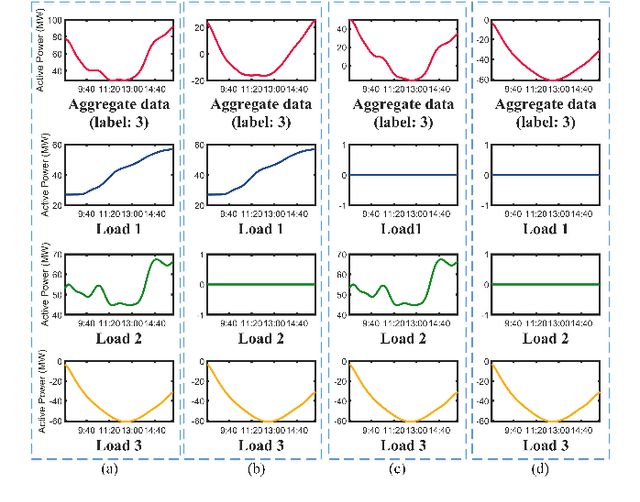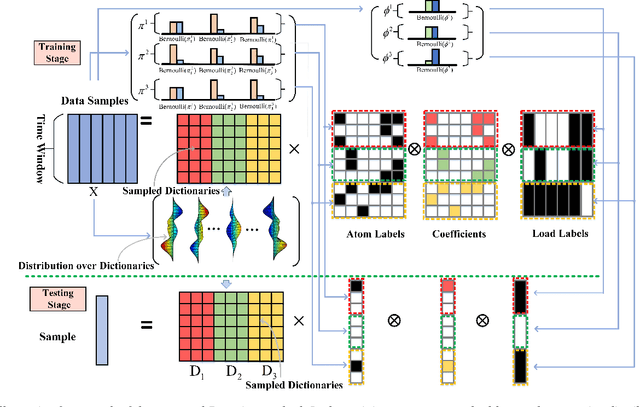Recent Results of Energy Disaggregation with Behind-the-Meter Solar Generation
Paper and Code
Jul 07, 2022



The rapid deployment of renewable generations such as photovoltaic (PV) generations brings great challenges to the resiliency of existing power systems. Because PV generations are volatile and typically invisible to the power system operator, estimating the generation and characterizing the uncertainty are in urgent need for operators to make insightful decisions. This paper summarizes our recent results on energy disaggregation at the substation level with Behind-the-Meter solar generation. We formulate the so-called ``partial label'' problem for energy disaggregation at substations, where the aggregate measurements contain the total consumption of multiple loads, and the existence of some loads is unknown. We develop two model-free disaggregation approaches based on deterministic dictionary learning and Bayesian dictionary learning, respectively. Unlike conventional methods which require fully annotated training data of individual loads, our approaches can extract load patterns given partially labeled aggregate data. Therefore, our partial label formulation is more applicable in the real world. Compared with deterministic dictionary learning, the Bayesian dictionary learning-based approach provides the uncertainty measure for the disaggregation results, at the cost of increased computational complexity. All the methods are validated by numerical experiments.
 Add to Chrome
Add to Chrome Add to Firefox
Add to Firefox Add to Edge
Add to Edge